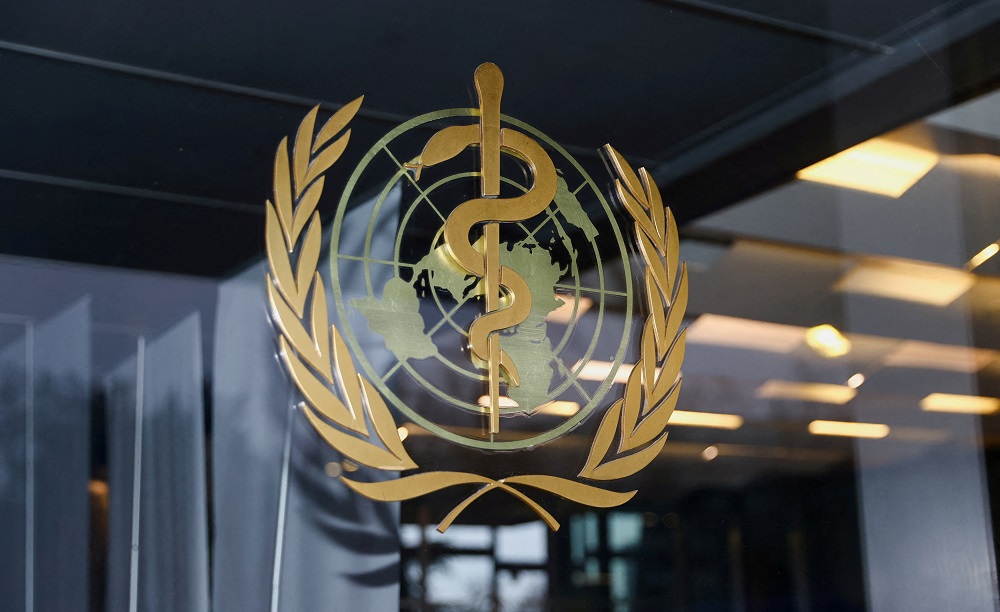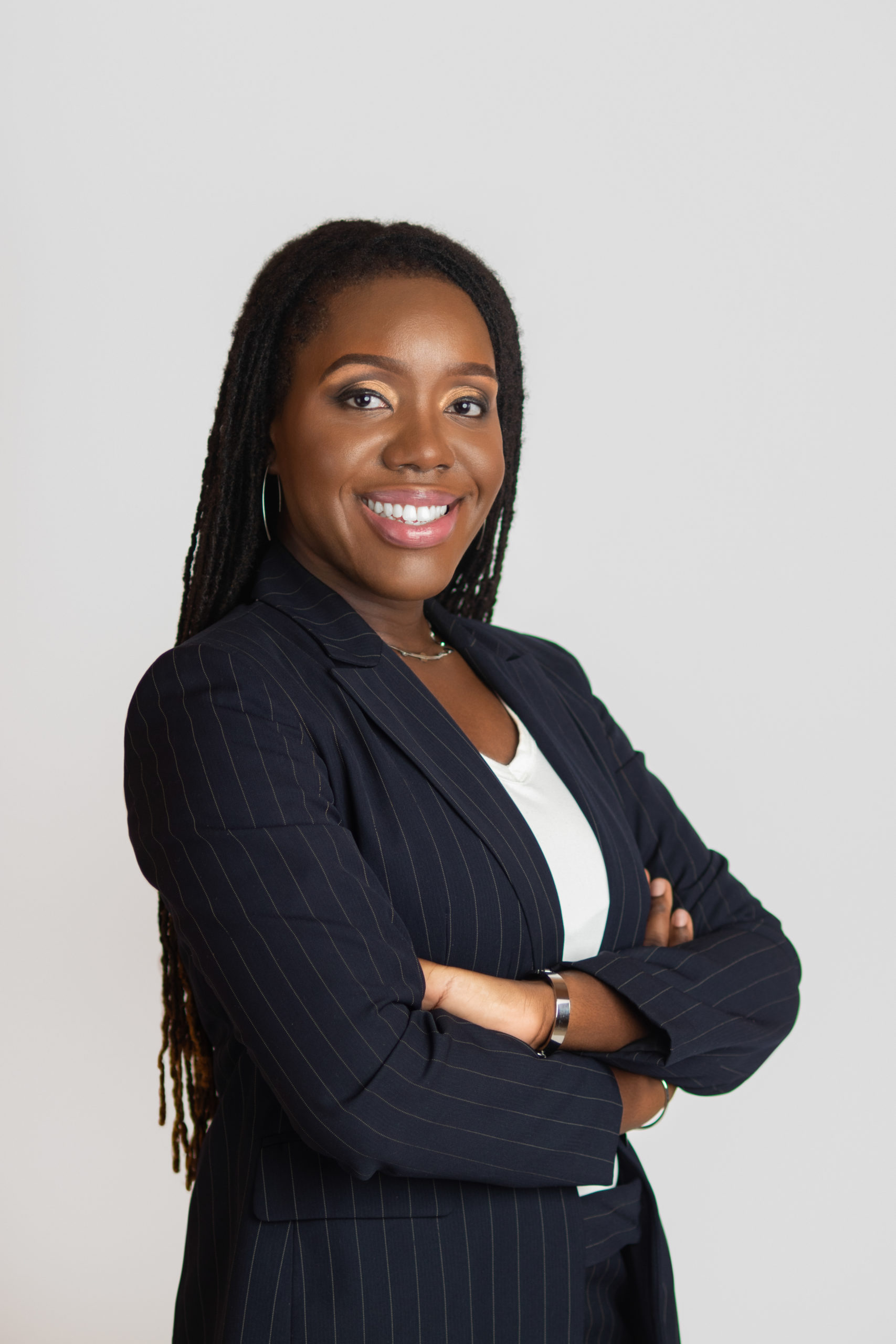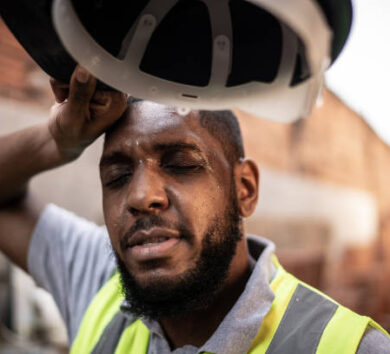

*This is the second part of a two-part feature on pregnancy loss
In 2021, a study by the renowned British medical publication, The Lancet, found that Black women are over 40 per cent more likely to have a miscarriage than other ethnicities.
Among the factors for miscarriages, The Lancet highlighted being under 20 or over 40, being very underweight or overweight, and being black being the most common.
In an interview with Our Today, Dr Melissa Forbes-Gabbadon, obstetrician-gynecologist (OBGYN), said that in addition to the factors outlined by The Lancet, abnormalities with the uterus and cervix are also factors. These, she mentioned, also include fibroids.

“There are many issues that are thought to contribute to pregnancy loss. In the case of more advanced pregnancies that are lost within 13 to 20 weeks, there is a condition called cervical insufficiency. Jamaicans tend to refer to it as ‘low womb’, which is where there can be a weakening of the cervix that causes the pregnancy to get lost at an earlier number of weeks,” she said.
“So, that’s one consideration that, certainly, if we see that there are recurring pregnancy losses, to consider cervical insufficiency as a possible factor. Other issues that may contribute to pregnancy loss is an abnormal anatomy with the uterus,” Forbes-Gabbadon added, indicating that many of the issues she mentioned can be detected by ultrasounds. So, early detection is possible.
The OBGYN also shared that even more common than the mentioned factors are illnesses linked to race such as diabetes.
In addition to diabetes, there are certain autoimmune diseases such as lupus, that tends to have a frequent incidence of miscarriage. Autoimmune illnesses are also pretty common in Black women.
Dr. Melissa Frobes-Gabbadon, obstetrician-gynecologist (OBGYN)
“In addition to diabetes, there are certain autoimmune diseases such as lupus, that tends to have a frequent incidence of miscarriage. Autoimmune illnesses are also pretty common in Black women. There is also sickle cell disease, which is another common illness faced by the Black population and is also linked to early pregnancy loss as well,” she said.
Pregnancy loss, miscarriage, stillbirths
Forbes-Gabbadon explained that pregnancy loss refers to the loss of a baby. However, early pregnancy loss refers to the loss of a baby before 12 completed weeks of a pregnancy. It is sometimes used interchangeably with the term, miscarriage.
“Early pregnancy loss is a gentler and more accepted term for miscarriage,” she said. “For persons who have experienced a miscarriage, hearing the word can trigger a lot of emotion and ‘early pregnancy loss’ is easier to digest,” she added.

Dr Forbes-Gabbadon pointed out that though early pregnancy loss and miscarriage are sometimes used synonymously, “miscarriage can refer to the loss of a pregnancy even at 19 weeks.”
She added that use of the term ‘early pregnancy loss’ narrows down that range to 12 weeks or less.
“So, you can have a more advanced miscarriage which can take place from 13 to 19 weeks. Typically, beyond 20 weeks of pregnancy, that would be termed a stillbirth. Because, a loss beyond that 20-week mark (the period considered as viability) is a stillbirth. Before 20 weeks, however, is referred to as a miscarriage but early pregnancy loss is actually 12 weeks or earlier in pregnancy,” she explained.
“That’s what is proposed by the World Health Organization (WHO). Prior to the ‘before 20 weeks’ stipulation, it was actually 24 weeks but the WHO changed it within the last four years. They made it earlier because it was found that in some countries, babies born as early as 20 weeks could actually survive. As it relates to Jamaica, we haven’t yet had a baby survive as early as 20 weeks. We have adopted the WHO definitions for miscarriage and stillbirth as our own,” she said.

The doctor highlighted that early pregnancy loss rates are a bit difficult to define “because, not every woman who experiences a miscarriage or an early pregnancy loss may actually seek medical attention”.
She said that some women may get a positive pregnancy test and then once bleeding starts, some women may assume that it’s their monthly period. She noted that some women may allow nature to take its course, especially if they have experienced an early pregnancy loss before. As such, the rates are thought to mirror international rates which state that about 1 in 5 women experience early pregnancy loss.
“But, the concrete rates for Jamaica are actually not known at this point in time,” she said.
Supporting women who have gone through pregnancy loss
Forbes-Gabbadon shared that counselling is generally encouraged for women who have experienced pregnancy loss. This, whether via seeking help “from a professional, or the counselling services from a church, for example, or a capable organisation that the patient belongs to”.
“We generally encourage that as much as possible for both the patient and her partner certainly because of the emotional trauma that pregnancy loss results in. Early pregnancy loss is definitely devastating emotionally and physically. The physical trauma alone certainly can take a toll on the woman’s body because a significant amount of blood loss may occur. It can typically trigger anaemia or a low blood count. Remember, the possible factors that may have contributed could mean that the woman has uncontrolled medical illnesses. So, it’s important to address any potential underlying factors as well as the issues that arise as a result of the miscarriage,” she said.
I was fortunate enough and got three weeks off after the loss. That in itself is one of the issues I wrote about in my book. In St. Kitts and Nevis, we have a mandatory 13 weeks paid maternity leave but you would have had to make it at to least 28 weeks in your pregnancy in order to get that 13 weeks. I made it to 26.
Jihan Williams
Unfortunately, maternity leave in Jamaica does not cover pregnancy loss.
“So, typically, what can be done for a patient who has experienced that trauma and need time off to rest and recover, is that they are given a sick certificate. We do this on a case by case basis as each experience is unique. It’s not quite the same but, it counts in a small way. The maternity leave provisions in Jamaica states that a patient is eligible for maternity leave in the event that the baby is born beyond 28 weeks. So, that shows you that there is a large range of pregnancy loss that would not be covered under those provisions,” she indicated
Williams said that in her case, “I was fortunate enough and got three weeks off after the loss. That in itself is one of the issues I wrote about in my book. In St. Kitts and Nevis, we have a mandatory 13 weeks paid maternity leave but you would have had to make it at to least 28 weeks in your pregnancy in order to get that 13 weeks. I made it to 26. So, if I stayed pregnant for 10 more days, I would’ve benefitted from that. Since I didn’t make it to 28, it was then up to the doctor’s discretion on when I would be physically able to go back to work.”

Forbes-Gabbadon shared that once the physical is taken care of, “there is that emotional trauma that the woman has also endured as a result”. She highlighted that the varying stages of grief “such as denial, anger, bargaining, depression, and acceptance”.
“For each woman, that picture will look very different. Some women, for example, may want to just move past it and get back to her usual activities, whereas others will dwell on the experience for years. Each response is different and each is justified. But, certainly, it is important to try and work through that trauma and consider talking about it with trusted friends and family as much as possible. This is simply because, the weight of the experience can wear on you for quite some time if you don’t try to work through it,” she urged.
The doctor said that the ‘work through’ process has implications for future pregnancies and that it can affect relationships because there tends to be a lot of guilt and blaming that can occur. This, despite there not being a specific cause to the loss in a majority of the cases.

“Unfortunately, that’s just how it is and it is important to encourage persons to not blame themselves and lean on their support support system if they can,” she said.
“In terms of other resources, outside of just counselling, social media does offer a lot of virtual support options. There is one local group that I am aware of who is vocal about pregnancy loss called @4damani on Instagram. It is operated by parents who have experienced this trauma. Other virtual support spaces might not be local, but they’re just as good to allow a medium for women to vent about their experiences and reflect on the experiences of others as well to form a virtual community of support. So that ‘s another benefit of social media in a case like that,” she highlighted.
Spouses hurt too
As the doctor highlights, pregnancy loss can also create strain on a relationship, and Williams can attest to that.

“Theres a chapter in the book [Lifting the Weight of Miscarriage: Healing Insights on Pregnancy Loss for Sufferers and the People Around Us] called ‘The forgotten fathers’ and I think [my partner’s] response really pushed me to include information about that. When people go through pregnancy loss, the focus is mostly on the mother. Everyone was calling him to find out how I was doing thinking that they didn’t want to upset me. However, they didn’t think that it would be upsetting for him as well. He shared that me and asked, ‘why does nobody think that I am being bothered by this?’,” she said.
“I was also upset with him after the loss because I did not see him crying and he seemed to have no reaction. But he showed up in other ways. Miguel was at the hospital with me, they sent him to get my medication, he had to go home and collect things for me, he had to run errands and come back to me in the hospital. He really was doing what needed to be done and I was stuck on him not reacting. I felt like he wasn’t expressive about what he was feeling and to that, he said: ‘Jihan, how can the two of us break down? The two of us can’t break down’,” she added.
Williams pointed out that her spouse dealt with the loss in his own way and she eventually realised that he was right when he indicated that “somebody just has to keep the wheels moving. Unfortunately life doesn’t stop because this has happened.”
What not to say to someone who experiences pregnancy loss
It is unfortunate that women are often blamed for their pregnancy loss. Situations like that may just out of their control.

Apart from the blame-casting, there are things that you should not say to a woman or her spouse after they have endured a pregnancy loss.
Williams shared with Our Today that there is a chapter in her book “about things I wish people knew about miscarriage”. It gives some guidance on things that she wished people could be more considerate of and aware about when speaking to grieving parents.
“Recognise that what you say and do has implications. One of the first things I talk about is telling people ‘God knows best’ and ‘everything happens for a reason’ should not be said to somebody who has gone through a pregnancy loss. Even if you feel that way, even if you are a devout Christian, knowing the power of God and knowing that there is a reason and a purpose for the trauma, you should keep it to yourself,” she stressed.

“Don’t say it, because in that moment, it’s insensitive. In that moment, the mother is focused on her own pain and their spouse is also hurting. That’s all they’re seeing in that moment. So, if you come in and say those words, that’s not acknowledging what people are feeling. It is actually dismissive,” she added.
Williams shared that it was really important for her to try and explain to people they should be careful of what they say to a grieving mother and father after pregnancy loss because in that moment, they hurt and only see their experience through “pain-filled glasses”.
Dr Forbes-Gabbadon noted that education and sensitisation about pregnancy loss and it’s impact on parents could go a far way. This includes how to be more considerate to feelings and also to do away with blaming.
It’s just that sometimes when the cells come together and they start to multiply, there can be errors that occur and its just nature’s way of dealing with that abnormal pregnancy.
Dr. Melissa Forbes-Gabbadon, OBGYN
“In many cases, there will never be a specific cause identified for an early pregnancy loss. The most common reason that has been cited is usually an abnormality with the genes of the baby which is not really a fault of the patient or her partner. It’s just that sometimes when the cells come together and they start to multiply, there can be errors that occur and its just nature’s way of dealing with that abnormal pregnancy,” she said.
Speak to your healthcare provider
Dr Forbes-Gabbadon told Our Today that she would encourage women to reach out to their healthcare providers if they are considering becoming pregnant. She said that women should do it “just so that we can do an overall check up to ensure that if there are any issues that need to be addressed before pregnancy, they can be done.”
“Generally, that should, somewhat, increase chances of healthy pregnancy and hopefully avoid some of that potential trauma from miscarriage. As I said, many times, it may not be able to be predicted or prevented, but sometimes, being in the best of health can increase your chances of a healthy pregnancy. So, reach out to your healthcare providers to try and get an overall snapshot of what your chances are like and address any risk factors beforehand,” she said.
Connect with Dr. Melissa Forbes-Gabbadon on Instagram @drforbesobgyn or @lifespringja and connect with Jihan Williams on Instagram and Facebook @jihanawilliams or through her website at jihanwilliams.com.
The first part to this story features Jihan WIlliams from St. Kitts and Nevis who experienced pregnancy loss in her sixth month of pregnancy due to degenerating fibroids. She spoke with Our Today about her loss and how she has used the experience to write a book, ‘Lifting the Weight of Miscarriage: Healing Insights on Pregnancy Loss for Sufferers and the People Around Us’. She has also turned her experience into advocacy for women impacted by pregnancy loss.
READ Part 1: Jihan Williams: from pregnancy loss to advocacy in St. Kitts and Nevis, Caribbean
RELATED: Black women over 40 per cent more likely to have a miscarriage – Lancet study
Send feedback to [email protected]







Comments